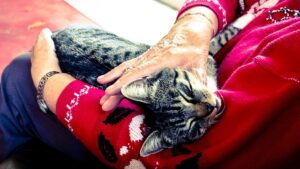Blog
Things to know about the pill and pregnancy If you get pregnant while birth control, stop taking the pill immediately. If you haven’t had your period for 3 months after quitting birth control, it is worth talking to your Ob/Gyn. It is generally recommended that you use a barrier method…
Read MoreTips for sleeping while pregnant Exercise, but not right before bed! Movement influences circulation, which is necessary for rest, but exercise also releases adrenaline that can make it difficult to sleep. Drink plenty of fluids throughout the day, but not in the hour leading up to bed: this will help…
Read MoreWhy are women more likely to have insomnia than men? Women are more likely to suffer from insomnia because of hormonal changes during the menstrual cycle; furthermore, hormonal changes associated with menopause are likely to increase your chance of suffering from insomnia with age. Other conditions that cause insomnia which…
Read MoreWhat women can do to promote healthy aging It’s never too early, nor too late, to start making changes in your lifestyle to account for your health. Here are some of the easiest and fastest ways you can make changes: Diet: switch to healthy fats and minimize sugar consumption. Exercise:…
Read MoreWhy are strong bones so important? Osteoporosis means, “porous bone,” and the change in structure of bone material is a primary cause for injury and broken bones in elderly populations. This is a serious condition that has the capacity to cause disability and permanent pain. One way to live a…
Read MoreWhat exactly is cellulite? Cellulite is not just unsightly chunks of fat. It is a more complex physiological condition that often results from a combination of factors including hormones and heredity. What’s more, it is thought to affect over 90% of women in the United States at some point in their lifetime.…
Read MoreHeart disease is the leading cause of death for women in the United States. As such, it is crucial for women to understand the risk factors for heart disease in order to take proactive measures to protect their heart health. Some of the most common risk factors for heart disease…
Read MoreBoosting progesterone levels naturally One of the best ways to do this is through diet: B-complex vitamins Magnesium and zinc Focus on soluble fire Reduce alcohol and caffeine intake Another is to increase your frequency of aerobic exercise and work on stress reduction techniques. Stress is one of the hardest…
Read MoreOne common fitness myth is that the more time you spend in the gym, the better your results will be. However, this is not necessarily true. While it’s important to exercise regularly and consistently, spending excessive amounts of time at the gym can actually be counterproductive. Overtraining can lead to…
Read MoreWhat happens when you don’t get the sleep you need? Part of this must be biological right? Yes- a woman’s biological clock is wired slightly differently in that her circadian rhythm is about 6 minutes shorter than that of a man’s. Women tend to sleep worse during their period due…
Read More








